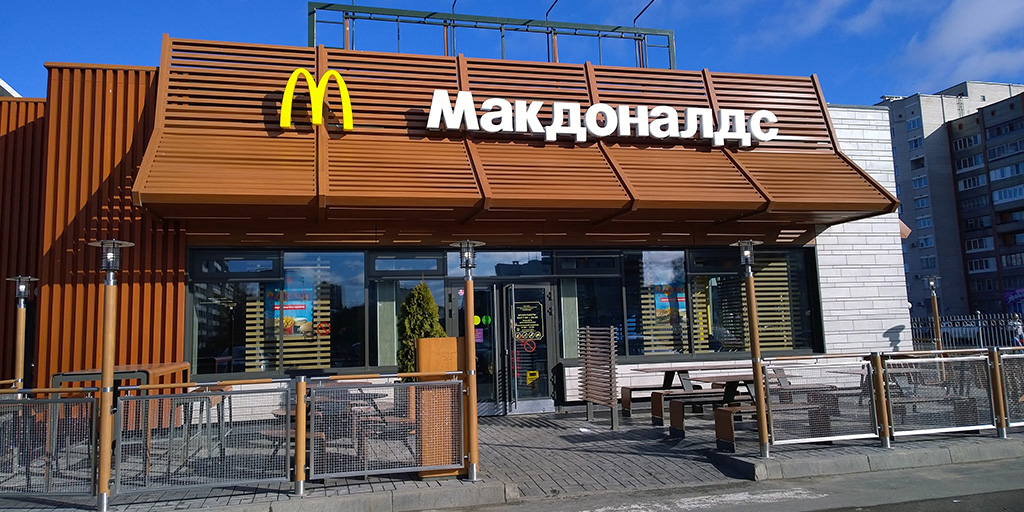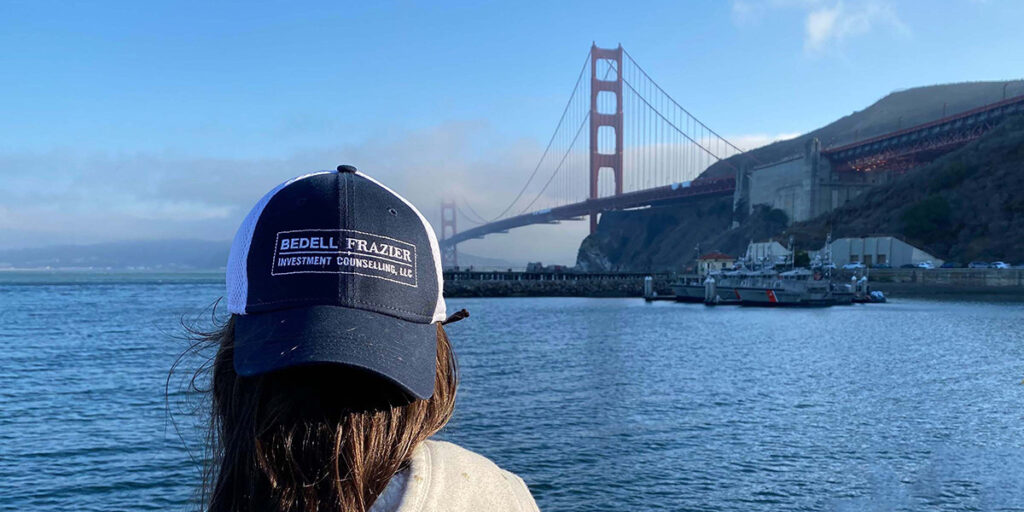It was another raucous week on Wall Street. The Dow and S&P saw their 5th consecutive weekly decliner. It’s the longest in 3 years. Reports that Russia was more willing to a diplomatic solution to the war sent the Futures Market higher Thursday night with the rally spilling into Friday morning. That rally quickly faded. You can’t believe anything Russia says. There’s still so much uncertainty in this situation. The Market remains quite tense. The price action reflects the situation.
The response from the West has been substantial, while mostly economic. Unprecedented sanctions have been placed on Russia. Sanctions are basically penalties. They’ve been targeted at the Russian government, Russian companies and even Russian individuals. Corporate America keeps pulling out of Russia. Coca-Cola, Starbucks and McDonald’s announced this week they are suspending business in Russia, among others. That sends a clear and important message to the World. A shiny red Coke can and those Golden Arches are as recognizable as anything on Planet Earth. The Russian people like them. Now, they can’t have them. It will be fascinating and telling to see how they respond.
Coca-Cola is everywhere. But Russia and Ukraine account for less than 2% of the company’s total revenue. Starbucks has 130 locations in the region, and they’re in Russia only. Starbucks doesn’t own them. They’re franchised. Starbucks said that it is suspending shipment of all its products to Russia. The company plans to donate royalties from the Russian stores to humanitarian organizations in Ukraine. McDonald’s, on the other hand, has nearly 1,000 restaurants combined in Russia and Ukraine. McDonald’s doesn’t own all its Russian and Ukrainian locations, but it owns and operates most of them. The company is continuing to pay its Ukrainian employees during this crisis.
Russia and McDonald’s have an important history. McDonald’s first opened its doors to Moscow in 1990. That was the year after the Iron Curtain fell. In many ways, seeing the Golden Arches in Moscow’s Pushkin Square symbolized the opening of the Soviet Union to the West. There are now 850 restaurants and over 60,000 McDonald’s employees. And they’re now closed. The Pushkin Square restaurant was the largest McDonald’s at the time. It served 30,000 people on opening day. They had over 600 employees. It’s reported that 27,000 applied for jobs. McDonald’s in Russia is no small deal. The company generates nearly 10% of its revenues from there. The opening of McDonald’s in Russia was a major moment in history, symbolizing a new beginning. Its closing this week is a much different message, and a moment quite major too. The impact of this war is being felt far and wide.
Inflation keeps spiking. It’s a theme and a big problem. The Consumer Price Index (CPI) rose by 7.9% in February, representing the largest 12-month increase since January of 1982. The Core CPI, which excludes food and energy, increased 6.4% year-over-year. This is the Fed’s preferred gauge to measure inflation. The Bureau of Labor and Statistics produces the report. These numbers were calculated before the Russian invasion. They are going higher. Oil spiked to $130 earlier in the week, but closed the week lower at $109. That’s still really high. Oil started the year at $75. To say the Fed has a tough job ahead is a complete and total understatement. It meets next week. The Market will be laser-focused on what they do and what they say.
Inflation was a problem before this war. Oil prices were already tight before Russia invaded Ukraine. Shippers and truckers were in short supply due to Covid. It was tough to get Oil onto the Market just like anything else as a result of the supply chain strain. Remember, prices for goods spiked over 10% from February to March of 2021, as the re-opening of America began. That’s a 120% annualized rate. That was a year ago. Demand outstripped supplies big time, with manufacturers and distributors unable to keep up. It seems as if people forgot about the blockage of the Suez Canal a year ago. There was a major backup at the ports of Los Angeles and Long Beach too. Shipping logistics have been a complete mess. Finding enough workers has been beyond challenging. It’s still not back to normal and the economic sanctions on Russia are complicating things again on the high seas. This is all extremely inflationary.
As you know, Europe is the largest importer of Russian Natural Gas. In case you’re wondering, China buys the most Russian Oil. China consumes 1/3 of Russia’s daily exports. The Netherlands is next at 13%. Denmark, South Korea, Poland and Italy all buy between 5-10% each. These are our allies. The Oil needs to be replaced. There are no quick nor obvious solutions.
Only 4 countries currently have spare Oil capacity. They are Iraq, the United Arab Emirates, Kuwait and, of course, Saudi Arabia. That’s if we don’t include Iran, which has faced sanctions for years. With such small additional supply, it will have to be demand that slows these rising prices. What price is that, you might wonder? It took $140 Oil back in 2008 before an American recession. That would equate to approximately $200 Oil today, accounting for the inflation. It hit $130 this week. It later fell back down to $105, before closing the week at $109. These are not normal times. $200 Oil would shave 2 percentage points off GDP. You can feel the weight on the Economy. The World still runs on Crude.
There’s a technical issue at play in the Oil Market. It’s called “Backwardation.” The price of Oil today is much higher than tomorrow. Another way to say it is, future Oil is worth much less than the current supply. The reason is you can’t just turn on the tap and produce more Oil. It takes months. It requires people, pipes, rigs, ships and trucks. It’s a very layered and sophisticated process. The December contract for a barrel of Oil is trading at $90, suggesting the supply issue will loosen over time.
When you consider a barrel of Crude Oil, nearly half of it goes to the gas pump. Gasoline accounts for 45% of refined Oil. Prices are much higher now. The average gas price across the country heading into the weekend is $4.33. It was $3.48 a month ago and a mere $2.77 a year ago. Gas prices jumped 63 cents in just a week! In case you were wondering. The average price for a gallon of regular unleaded in California is now $5.72. Then there’s this: We are still using winter-blend gasoline, which is cheaper to produce. The Summer grade blend comes next month. That alone increases the price at the pump. We could see $6 gas across the country, and even $8 in California.
Higher prices aren’t just on the road. They’re in the air as well. Airlines are facing decade-high fuel prices too. Fares have gone up recently. But that has a lot to do with the season. It takes a bit of time for higher fuel prices to filter through. Travelers usually don’t see higher ticket prices for 3-4 months. The reason is that most airlines hedge their fuel prices. That means they lock-in a contracted price for a stated period of time. It generally covers 3-6 month cycles. This process protects the airlines from immediate price shocks. That should provide a bit of a cushion to the price of Spring and many Summer trips. But consider booking flights now for August and beyond.
I will leave you with some pieces of optimism:
Amazon announced a 20 for 1 stock-split, the first split since 1999. More importantly, the company is buying back $10 Billion of its own stock. With all the things that Amazon could be investing in, management is making a big statement that it thinks its stock is undervalued now and is aggressively investing in itself. Another helpful reminder came from Cupertino this week as Apple keeps moving forward and cranking out new devices its customers covet. And Major League Baseball finally got its act together and the season is back on. Pitchers and Catchers report to Spring Training this weekend. That’s something.
The Market keeps moving. It’s made it through wars, both hot and cold, terrorist attacks, natural disasters and a global pandemic. We’ve successfully navigated through all of them. We’ll get through this stage too.
Have a nice weekend. We’ll be back, dark and early on Monday.
Mike






